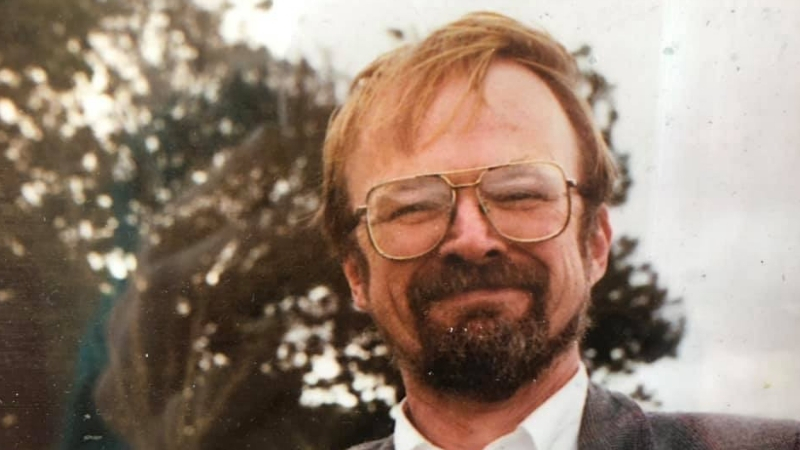Paul Englund, Renowned Biochemist Who Studied Parasites, Dies
01/18/2019

Paul T. Englund, Ph.D., professor emeritus and Johns Hopkins scientist who studied parasites that cause African sleeping sickness, died Saturday, Jan. 12, of advanced Parkinson’s disease. He was 80.
Englund’s career in the Department of Biological Chemistry at the Johns Hopkins University School of Medicine spanned more than 40 years, during which he published over 160 research papers and mentored scores of research trainees in his laboratory.
He is best known for studying the structure and mechanics of genetic material in parasitic organisms called trypanosomes, which cause African sleeping sickness. The potentially lethal disease is spread by the tsetse fly in sub-Saharan parts of Africa and gets its name from disrupting victims’ sleep patterns.
Among his research discoveries, Englund found that trypanosomes make fatty acids in a way that is unique to the organism. The discovery is important because sugars and fats make up substances called GPI anchors, which are found on cell surfaces and act like anchors for proteins and other molecules important to the cell. In trypanosomes, GPI-anchored proteins switch periodically to evade attack by the host’s immune system.
“Paul was the consummate scientist, mentor, colleague and human being,” says Michael Caterina, M.D., Ph.D., professor and interim director of the school of medicine’s Department of Biological Chemistry. “He had an uncanny knack for identifying interesting biological problems and providing his trainees with the guidance, encouragement and freedom to tackle these questions in a creative, rigorous manner. Everyone in our department sought out and respected his wisdom, and he delivered that wisdom with exceptional warmth and humor. We were very fortunate to have him as a colleague and friend.”
Englund earned his bachelor’s degree in chemistry at Hamilton College in New York in 1960 and his doctorate in biochemistry at Rockefeller University, also in New York, in 1966. He then took a postdoctoral position with Nobel laureate Arthur Kornberg, M.D., at Stanford University. He joined the Johns Hopkins faculty in 1968 and rose through the academic ranks until his retirement in 2010 from the Department of Biological Chemistry, where he was a professor. He also held a visiting scientist position at the International Laboratory for Research on Animal Diseases in Kenya.
In 2016, Englund’s former trainees contributed funds toward an endowed professorship in his name at Johns Hopkins.
"Paul was a brilliant and creative scientist whose excitement and enthusiasm for research never flagged,” says Tamara Doering, M.D., Ph.D., alumni endowed professor of molecular microbiology at Washington University School of Medicine in St. Louis and a former Englund trainee. “He was also an inspiring and supportive mentor, who taught generations of trainees to do rigorous and collegial science. He was a wonderful person — engaging, funny, articulate, caring, and devoted to his family, his trainees and his colleagues.”
Englund was elected to the National Academy of Sciences in 2012 and was a member of the American Society for Biochemistry and Molecular Biology and the American Association for the Advancement of Science.
“Paul lectured to my first-year med school class at Johns Hopkins 49 years ago. Having arrived a year earlier from Nobel laureate Arthur Kornberg’s lab at Stanford, Paul’s elegant presentations on DNA and RNA stimulated several of us to careers in science. Such a wonderful man will always remain a special memory for those of us who knew him,” says Nobel laureate Peter Agre, M.D., Bloomberg distinguished professor and professor of biological chemistry at the Johns Hopkins University School of Medicine and director of the Johns Hopkins Malaria Research Institute at the Johns Hopkins Bloomberg School of Public Health.
Englund was born in Worcester, Massachusetts, in 1938 to Theodore and Mildred Englund. A Baltimore resident, he is survived by his wife, Christine Schneyer Englund, M.D., of Johns Hopkins; two brothers: Robert J. Englund and Donald R. Englund; four children: Suzanne Elizabeth Pykosh, Maria Jean Englund, Jennifer Insley-Pruitt and Peter Insley; and six grandchildren: Jack and Justin Pykosh, Milo and Magnus Quennoy and Oliver and Caroline Insley-Pruitt.
A public memorial service is being planned for this spring.
